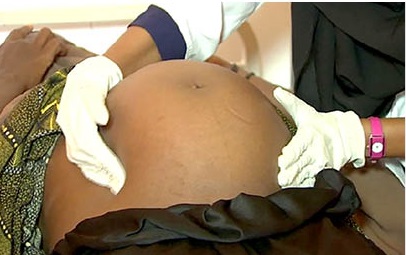Ghana News | Ghana Politics | Breaking News in Ghana

Strengthening surgical systems to reduce maternal mortality
Losing a woman during pregnancy or delivery is one of the most painful and indelible misfortunes that can befall a family.
African women are 50 times more likely to die after a Caesarean section than women in high-income countries, according to the medical journal, The Lancet. This is a major injustice that must be addressed.
Advertisement
Increase in maternal death
In Ghana, maternal deaths have increased over the last two years as noted recently by the Minister of Health, Dr Agyeman Manu. In 2021, 875 women died either during pregnancy or delivery. This represents an increase of 12.3 per cent, up from 776 in 2020.
In the Eastern Region, for example, 49 institutional maternal deaths were recorded in the first quarter of this year (2022) alone compared to 40 maternal deaths in the same period in 2016.
Ghana has made significant strides in reducing maternal deaths over the past two decades. However, this recent trend of increasing maternal deaths is deeply troubling and threatens to regress decades of progress made to reduce maternal deaths.
Policies
Ghana has developed comprehensive policies to improve pregnancy and delivery outcomes.
Some of these policies include the exemption of pregnant women from delivery fees in all public and faith-based health facilities.
While these policies are commendable, there are significant gaps in their implementation and begs the question: do pregnant women really have access to high quality care in public facilities in the country?
When a pregnant woman arrives at a facility in need of maternal care there are numerous factors that can delay her from receiving the care she needs. These health facility level delays are a major contributor to maternal deaths.

From my experience as a sexual and reproductive health expert, I will attribute some of these delays to systemic issues such as delays in decision-making and notifying the doctor on duty.
Challenges
Sometimes, care is further delayed when doctors are not readily available. At other times, delays arise from the medical laboratory, delays in providing Caesarean sections if needed, delays in referral to higher level facilities and many more.
These health facility level delays are clearly signs of systemic failures which need to be addressed.
One study identified inadequate training/skills mix (86 per cent), drug procurement/logistics problems (65 per cent), staff shortages (60 per cent), lack of equipment (51 per cent) and low staff motivation (44 per cent) as the most cited barriers to receiving quality maternal health care even when a pregnant woman arrives at a health facility on time.
Public facilities in Ghana have effective systems in place to ensure that every maternal death is audited.
Why then do similar occurrences lead to another maternal death? What happens to the recommendations from previous maternal death audits?
Continuous occurrence of maternal deaths suggest poor implementation of recommendations from maternal death audits or perhaps lessons learnt from previous audits are not widely communicated to all stakeholders within the care delivery system.
My discussions with healthcare staff suggest that maternal death audits could sometimes turn into avenues for a ‘blame game’ where particular people are cited for being the cause of specific events, leading to a maternal death instead of an assessment of the inefficiencies of the entire system that led to the death.
Inadequate leadership commitment to implementing maternal death audit recommendations is also a major contributor to the reoccurrence of maternal deaths owing to similar events. ‘Leadership is cause, everything else is effect!’
Recommendations
To reduce maternal mortality in Ghana, health management teams must begin by conducting ‘confidential enquiries’ into maternal deaths.
Recommendations from these audits should be turned into policies and effective implementation to these policies must be ensured.
Confidential enquiry into maternal deaths is usually in two folds, surveillance and confidential case review, providing information to aid quality improvement in maternal health care delivery.
Investment
Confidential enquiry into maternal deaths have been used in the UK for more than 60 years. The UK has seen a 10-fold fall in maternal deaths during this period.
The government and relevant stakeholders should also invest in surgical systems by providing the necessary equipment and training for health staff particularly at the peripheries to ensure that pregnant women both in rural and urban areas receive timely and safe Caesarean sections and post-operative care.
Strengthening Ghana’s surgical system will address the inequities in access to Caesarean section across the country.
Studies have shown that rich and educated women in urban areas have significantly higher access to C-sections than poor uneducated women who live in rural areas in Ghana.
Addressing the gaps in access to surgical, obstetrics and anaesthesia care in the rural areas will go a long way to help reduce maternal deaths in the country.
The media could also play a critical role by educating the public on their right to health care and empower them to demand quality, safe and timely care.
It has been reported that some pregnant women refuse Caesarean sections due to religious beliefs, which could also lead to maternal deaths.
The media could help in providing health education to the public.
A country’s health system can be judged by the way it cares for its most vulnerable, including pregnant women.
We must be careful not to undo the progress made in preventing our mothers from dying. Maternal mortality is completely preventable and urgent action is needed to end these avoidable deaths.
The writer is a Health Policy Associate at Operation Smile. Email: [email protected]




